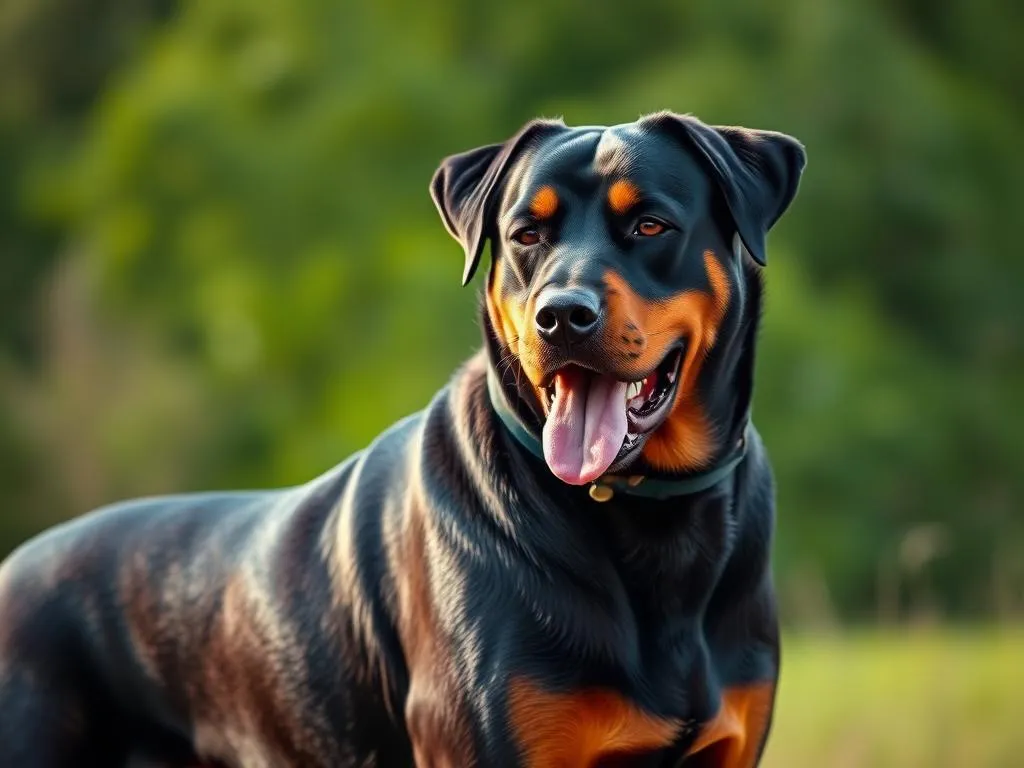
Introduction
When considering the diverse roles that dog breeds play in herding and farming, it becomes evident that certain breeds have been historically developed for these tasks. Among them, the Rottweiler stands out not only for its impressive physical abilities but also for its historical significance. Originally bred as herding and guarding dogs, Rottweilers have evolved over the years, raising the question: are Rottweilers good herding and farm dogs today? This article aims to analyze the suitability of Rottweilers for herding and farm work by examining their characteristics, instincts, training needs, and overall versatility.
Understanding Herding and Farm Dog Roles
Definition of Herding Dogs
Herding dogs are specifically bred to assist in the management of livestock. Their primary tasks often include gathering, directing, and protecting various types of animals, such as sheep, cattle, and goats. Popular herding breeds include the Border Collie, known for its agility and intelligence, and the Australian Shepherd, celebrated for its work ethic and versatility. These dogs possess strong instincts and skills that make them invaluable in farm settings.
Importance of Farm Dogs
Farm dogs serve multiple roles beyond herding, including guarding livestock, companionship for farmers, and general farm security. Characteristics that make a dog suitable for farm life typically include intelligence, adaptability, loyalty, and a strong work ethic. A well-rounded farm dog must also be able to navigate various environments and interact positively with livestock and humans alike.
Rottweilers: An Overview
Historical Background
The Rottweiler has a rich history that dates back to ancient Rome. Originally, these dogs were used to herd cattle and guard their owners’ property. As they traveled with the Roman legions, they became known for their strength and protective nature. Over time, the Rottweiler evolved, becoming a versatile breed capable of various tasks, including herding and guarding, which solidified their place on farms.
Physical Characteristics
Rottweilers are known for their impressive stature, typically weighing between 80 to 135 pounds, with males generally larger than females. They have a strong, muscular build, a broad head, and a distinctive black and tan coat. This physicality allows them to handle the demands of farm life, whether herding livestock or serving as a guardian. However, prospective owners should be aware of health considerations, including hip dysplasia and obesity, which can affect their well-being.
Temperament and Behavior
Rottweilers are characterized by their loyalty, intelligence, and protectiveness. They tend to form strong bonds with their families, making them excellent companions. However, their strong-willed nature requires consistent training and socialization from a young age. Properly trained Rottweilers can excel in various roles, including herding and farm work.
Rottweilers as Herding Dogs
Natural Instincts and Traits
While Rottweilers are not traditionally classified as herding dogs, they possess certain instincts and traits that can make them effective in herding scenarios. Their intelligence, coupled with a natural protectiveness toward their family and livestock, positions them well for herding tasks. However, they may not exhibit the same level of instinctual behavior as breeds like the Border Collie or Australian Shepherd, which have been specifically bred for these tasks over generations.
Training and Skill Development
Training is crucial for Rottweilers to perform herding tasks effectively. A consistent training regimen focusing on commands, obedience, and socialization is essential for success. Positive reinforcement techniques work well with Rottweilers, as they respond better to encouragement than to punitive measures. Engaging them in herding exercises, such as working with livestock under supervision, can help develop their skills and instincts.
Success Stories and Anecdotes
There are numerous success stories of Rottweilers being utilized in herding roles. Farmers have reported positive experiences using Rottweilers to manage livestock, particularly in smaller operations where their size and strength can be advantageous. Testimonials from trainers and farmers highlight the breed’s intelligence and ability to learn, demonstrating that with the right training, Rottweilers can indeed be effective herding dogs.
Rottweilers on the Farm
Versatility Beyond Herding
Beyond herding, Rottweilers can fulfill various roles on a farm. Their protective nature makes them excellent guardians for livestock, deterring predators and intruders. Additionally, their loyalty and companionship can provide emotional support for farmers working in remote areas. Rottweilers are also adept at alerting their owners to potential dangers, making them valuable assets in any farm environment.
Challenges and Considerations
While Rottweilers can be excellent farm dogs, there are potential challenges to consider. Without proper training, they may exhibit misbehavior, such as chasing livestock or displaying aggression. Their size and energy levels also demand ample space and regular exercise, which can be a challenge on smaller farms. Owners must be prepared to invest time in training and providing an environment conducive to a Rottweiler’s needs.
Alternatives to Rottweilers
Other Suitable Herding Breeds
For those specifically seeking herding dogs, several breeds are traditionally used for these tasks. Breeds such as the Border Collie, Australian Shepherd, and German Shepherd are often preferred due to their inherent herding instincts and specialized training. These breeds have a long history of working alongside farmers and possess traits that make them highly effective in managing livestock.
Choosing the Right Breed for Your Needs
When selecting a herding dog for farm work, it is essential to consider individual temperament, energy levels, and compatibility with farm life. Some farms may benefit from the unique attributes of Rottweilers, while others may find greater success with traditional herding breeds. Assessing the specific needs of the farm and the dog’s characteristics is vital to making the right choice.
Conclusion
In summary, Rottweilers can indeed serve as effective herding and farm dogs, though they may not be as instinctively inclined toward herding as traditional breeds. Their loyalty, intelligence, and protective nature make them versatile companions capable of fulfilling various roles on a farm, from herding livestock to guarding property. However, successful integration into farm life requires consistent training, socialization, and a commitment to meeting their physical and emotional needs. Ultimately, prospective owners should consider individual dog characteristics and the specific requirements of their farm when determining the best fit for their needs.
Rottweilers may not be the first breed that comes to mind when considering herding dogs, but with the right training and environment, they can thrive in farm settings, proving to be both reliable workers and cherished companions.









